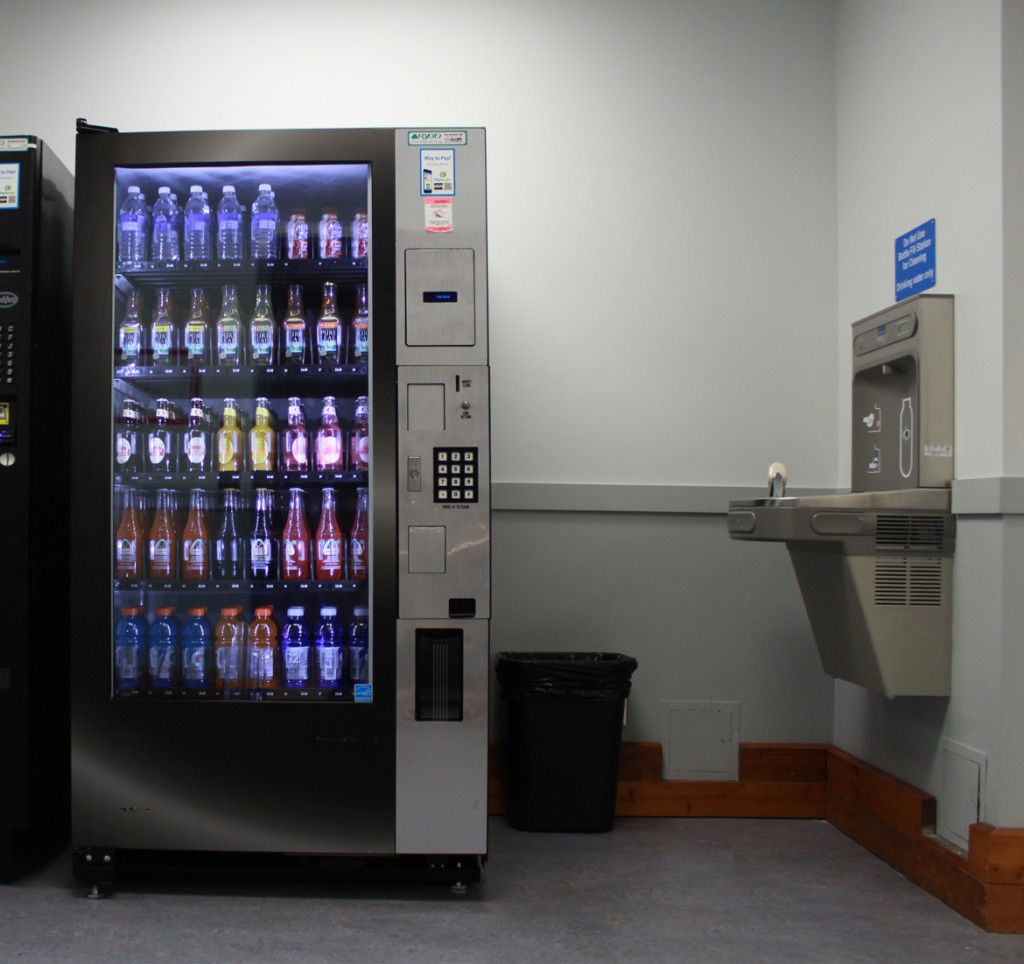By Michael Scoular (The Cascade) – Email

At budget forums, program announcements, and in meeting rooms around the province, the message is consistent: the provincial government is allowing public education funding to fall. In some cases provincial funding is now approaching only 50 per cent of university operating budgets.
To offset this news, the BC government has countered with some alternative measures: instead of guaranteed Adult Education funding, the possibility of individual grants. Or, when it comes to administrative costs, bargaining infrastructure they dubbed the Administrative Service Delivery Transformation (ASDT) initiative when it was introduced in 2012.
The latest work of the ASDT will bring an all-new set of vending machines to UFV for 2015-16. The ASDT bears an ambitious title, and its purpose — bringing together every public post-secondary institution in the province — is complex. But its focus is narrow, streamlining everyday processes with the intent of saving costs. The vending machine agreement follows developments in the areas of IT service, natural gas supply, and purchasing cards.
“That is part of the provincial government’s mandate,” said ancillary services director Cameron Roy, who led the proposal and contract process for the project. “The vending initiative was done so that it brings value. The whole idea is [higher] volume purchases will bring in a better investment in the institution.”
With the ability to promise an entire group of campuses that will house products and services for students who will use them, proposals through the ASDT are superior to what UFV has seen in the past, Roy said.
For the vending machines, the Vancouver-based Ryan Company Ltd. offered additional product, scholarship investment, and the potential for UFV grad hires in the future. In order to agree on those terms, the contract length ended up being seven years, with the option for three additional two-year terms. Roy says the university believes the benefits will be worth it.
“Typically our contracts are five years,” he said. “But we collectively decided, among all the team members of our working group, seven years would be a better return on investment.”
When the Ministry of Advanced Education announced the vending machine contract, it did so saying the agreement “will save the initial participating institutions up to $4 million over the life of the contract.”
Roy explains that this optimistic summary looks a bit different when broken down from UFV’s point of view, and does not apply if the contract is not extended with both optional terms.
“That is the best-case scenario … it’s not a misnomer, because we will see that over 13 years, but it won’t be [all UFV] … that’s the collective,” he says.
Overall revenue from the ASDT, in this particular case divided among the 11 institutions who have joined the vending machine agreement, will also be an amount that fluctuates from year to year, depending on the status of projects. In the Ministry’s 2015-16 letter regarding budget expectations sent to UFV chief financial officer Jackie Hogan, a reduction of $720,247 in UFV’s budget falls under the year-over-year change in “Post-secondary Sector Administrative Efficiencies.”
For now, UFV can count on the ASDT to be a continued source of new developments. The Ministry’s mandate letter to UFV’s Board of Governors includes the initiative as a “strategic priority action,” and timelines from the summer show plans for new deals related to travel management (contract by September), office supplies (proposals were scheduled for August), and natural gas (UFV is listed as on-board for a winter buy-in). Hogan and UFV president Mark Evered will continue to serve on the initiative’s steering and executive committees, respectively.
As for the vending machines, Roy said they will improve life for students in small, hopefully invisible ways; a good machine, apparently, is one that doesn’t stick out too noticeably.
“We are looking to reduce the number of machines on campus — to be more efficient with our power — but also so [we] don’t turn the campus into [a place that has] a vending machine every 20 metres,” he said.
According to Roy, the new vending machines will also be more power-efficient, and accept more payment options besides cash. The one exception will be the new Student Union Building on the Abbotsford campus, where the Student Union Society manages space and food options separate from the rest of the university.
With files from Megan Lambert.


